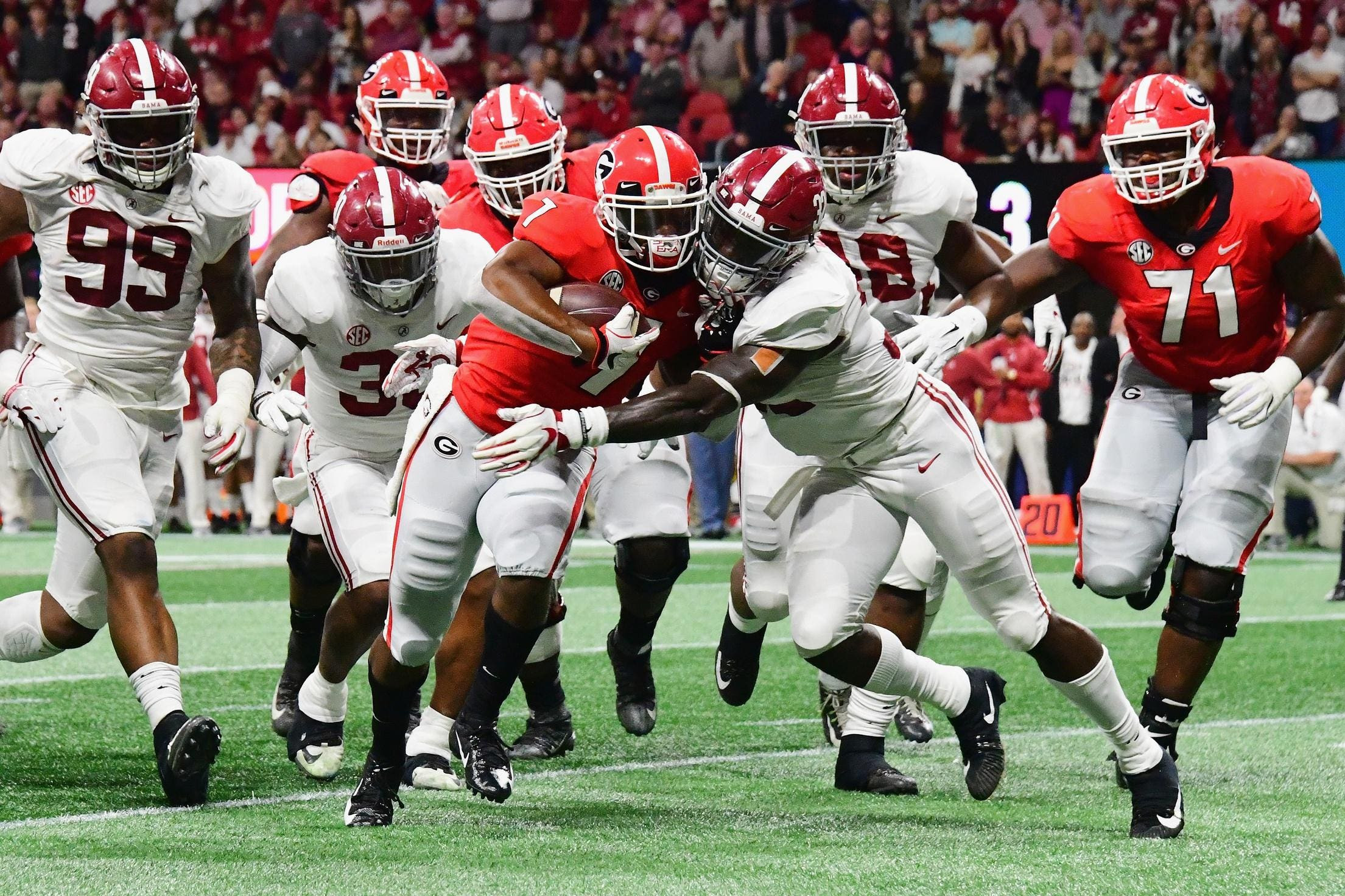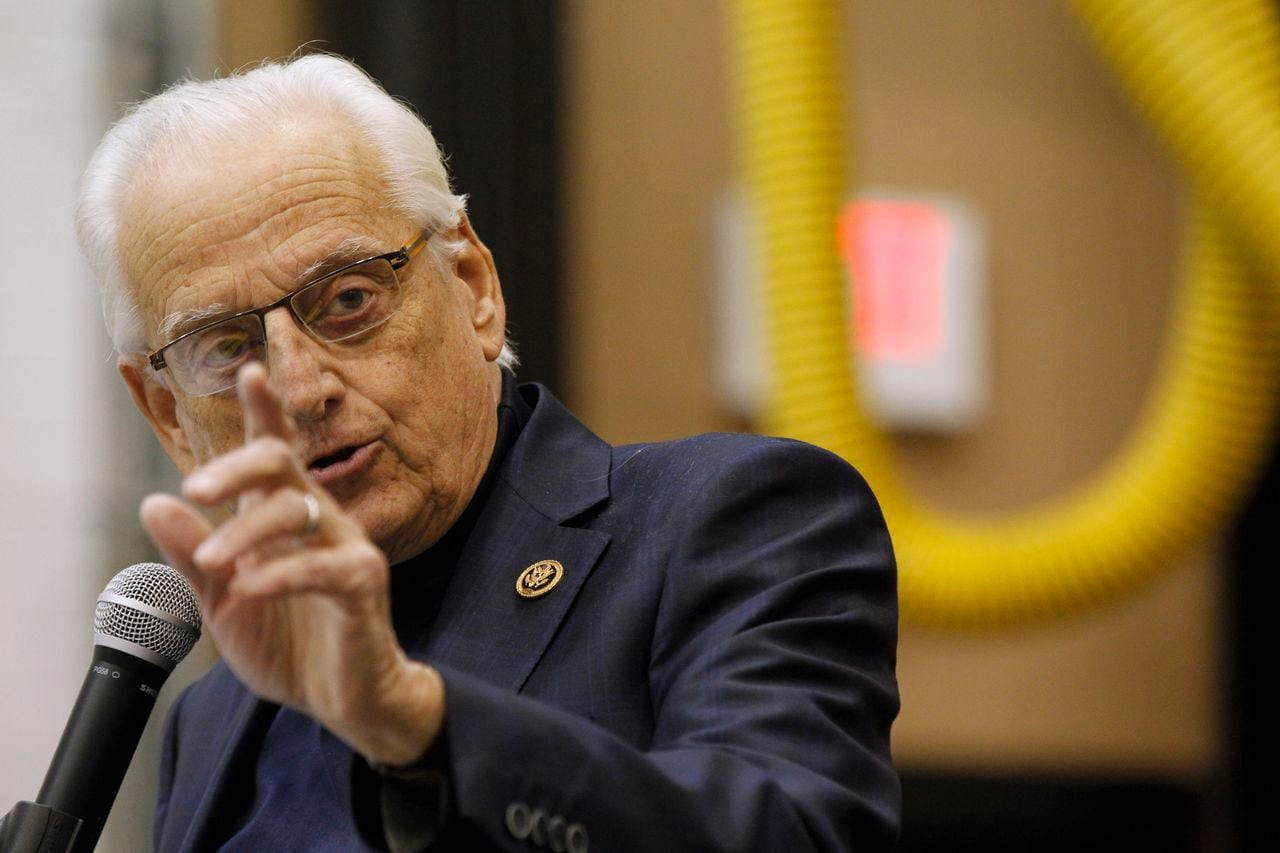Since about the time Rutgers met Princeton in the first-ever college football game in 1869, coaches have been making promises they could not - or never intended to - keep. Especially over the last decade or so, college football recruits have taken on this sort of celebrity status when they visit campuses - or when coaches leave their families around the holidays for in-home visits to beg players to sign with their schools.
Players are so lavished during the recruiting process that a new term was formed years ago to kick all that nonsense out of their system once they get to campus: De-recruited. That’s when reality sets in and it’s time to put up or shut up and some players can handle it and some don’t.
But now we’ve entered a new NIL era where the promises are not just hollow ones. There is actually a significant financial backing to it, promises made about dollars and cents, and those go a whole lot further than some cookie cake on a hotel mattress.
With that come dirtball deals, more lies and maybe even outright confusion. Now we have this UNLV situation. According to reports, UNLV starting quarterback Matthew Sluka, who transferred there from Holy Cross, believed he was promised a $100,000 NIL deal to come play for the Rebels.
The UNLV NIL operation - Blueprint Sports - pushed back against Sluka’s claims and said that there were no “formal” NIL offers made during Sluka’s recruitment. I take that as someone at UNLV promised Sluka something but not in written form by the collective and so there was nothing official. Who knows exactly what went down or was said. UNLV also released a statement saying the demands from Sluka and his family were “a violation of NCAA pay-for-play rules.”
This would hardly be the first time a coach exaggerated or outright lied to a recruit. But now we’re in the NIL era and players have power.
Am I crazy Sluka to think ditched out on his team in the middle of Fresno State preparations? No. But I cannot fault him. If everyone is getting their promised money and he’s sitting with a measly $3,000, I totally understand his point, too. Like coaches love to say, Sluka is standing on business - the Matthew Sluka business.
This is not the first NIL controversy and it won’t be the last. What I wonder most is what other quarterback is sitting out there right now reading the Sluka headlines and pondering if they should do the same thing because they were promised something they never received, either. It would hardly be the first time that happened.
NIL and the Transfer Portal: A Perfect Storm?
The Sluka situation has reignited the debate surrounding NIL and its impact on college football. Critics argue that the current system, with its lack of clear guidelines and regulations, creates an environment ripe for exploitation and misrepresentation. The transfer portal, which allows players to move between schools with relative ease, exacerbates the situation. Coaches can now entice players with NIL deals, creating a free-for-all where loyalty and program stability are often sacrificed for immediate financial gain.
College GameDay Weighs In
The debate over NIL reached a fever pitch during the Week 5 edition of ESPN’s College GameDay. Former Alabama head coach Nick Saban and ESPN commentator Kirk Herbstreit, two of the most recognizable faces in college football, voiced their concerns about the current state of the sport.
Saban, known for his blunt and often controversial statements, argued that the current NIL system undermines the values of college athletics. He emphasized the importance of developing players both on and off the field, a principle he believes is being overshadowed by the pursuit of financial gain.
“The passion we have for college football, all over this country and everywhere we go, is too important not to have a system that works for the players and works for the competitive spirit of the game,” Saban said.
Herbstreit, a former Ohio State quarterback and a long-time commentator, expressed concern about the power dynamic shift in college football, with players seemingly holding the reins. He argued for greater accountability among athletes and a return to a more traditional understanding of college football as a four-year commitment.
“We’re all for the players getting paid, but we’re not all for the players having all the control,” Herbstreit said. “We went from one extreme where the players didn’t have a lot of control to now the players having all the control. There needs to be some accountability for the players. I feel like some players select college, which to me is a 40-year decision. That’s a huge decision. … I feel like we’re teaching these kids — it’s almost like a seven-on-seven all-star team. You go here, you go here. They’re missing out on what those relationships can be. The NFL is great, but once that’s done you need somewhere to call home. These guys, they’re not going to have a home because they’re bouncing around too much.”
A Two-Sided Coin: Perspectives on NIL
While Saban and Herbstreit voiced their concerns, others argue that NIL is an essential step toward fairness for college athletes, who have long been exploited by the system. They point to the vast amounts of money generated by college football and argue that athletes deserve a fair share of the profits. Additionally, proponents of the current NIL structure emphasize the freedom it gives players to choose the best opportunity for themselves, both academically and financially. They believe that this freedom empowers players and helps them to navigate the complex world of college athletics with a greater sense of agency.
Navigating the Uncharted Waters: The Future of NIL
The NIL landscape is still in its infancy, with much ambiguity and uncertainty surrounding its implementation. The NCAA, struggling to adapt to the rapid changes brought about by NIL, is grappling with how to regulate the system while balancing the needs of athletes, institutions, and the overall competitive landscape. While some solutions, such as revenue sharing, have been proposed, the path forward remains unclear.
As the NIL era unfolds, the focus will shift to finding a balance between the financial empowerment of athletes and the preservation of the core values of college sports. This delicate balancing act will require collaboration between athletes, institutions, and governing bodies to establish a sustainable and equitable system that benefits all stakeholders. This is a challenge that will require creative solutions, open dialogue, and a commitment to fairness and transparency.
The Big Question: Is the System Broken?
The Matthew Sluka case and the broader NIL debate highlight the complex and rapidly evolving landscape of college athletics. The question remains: Is the current system fundamentally flawed, or is it simply a period of adjustment as everyone navigates this new era? While the current system might be chaotic and fraught with uncertainties, the goal should be to create a system that promotes fairness, accountability, and a true sense of purpose for all involved in college athletics. Only then can we truly say that college football is on the right track.

















